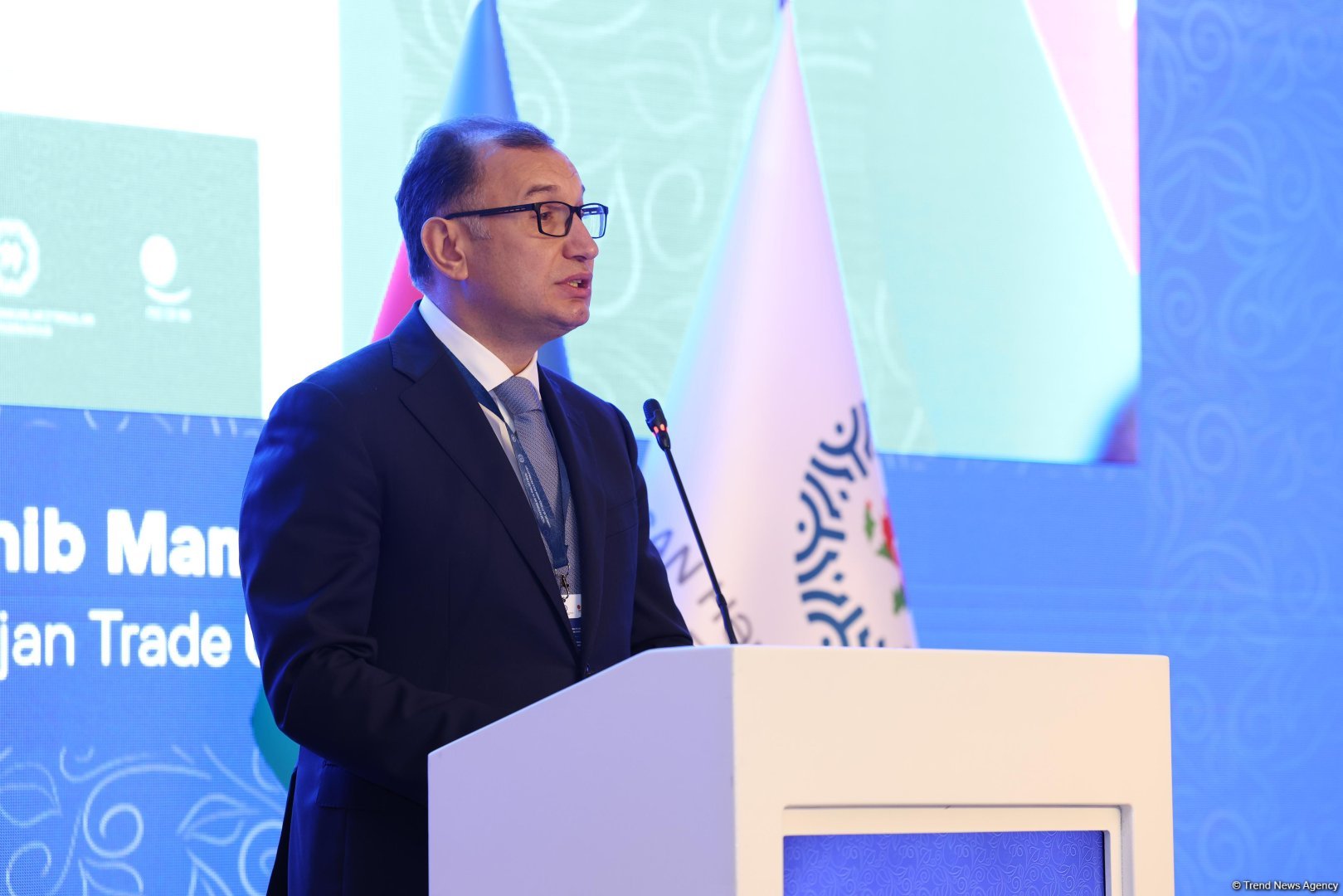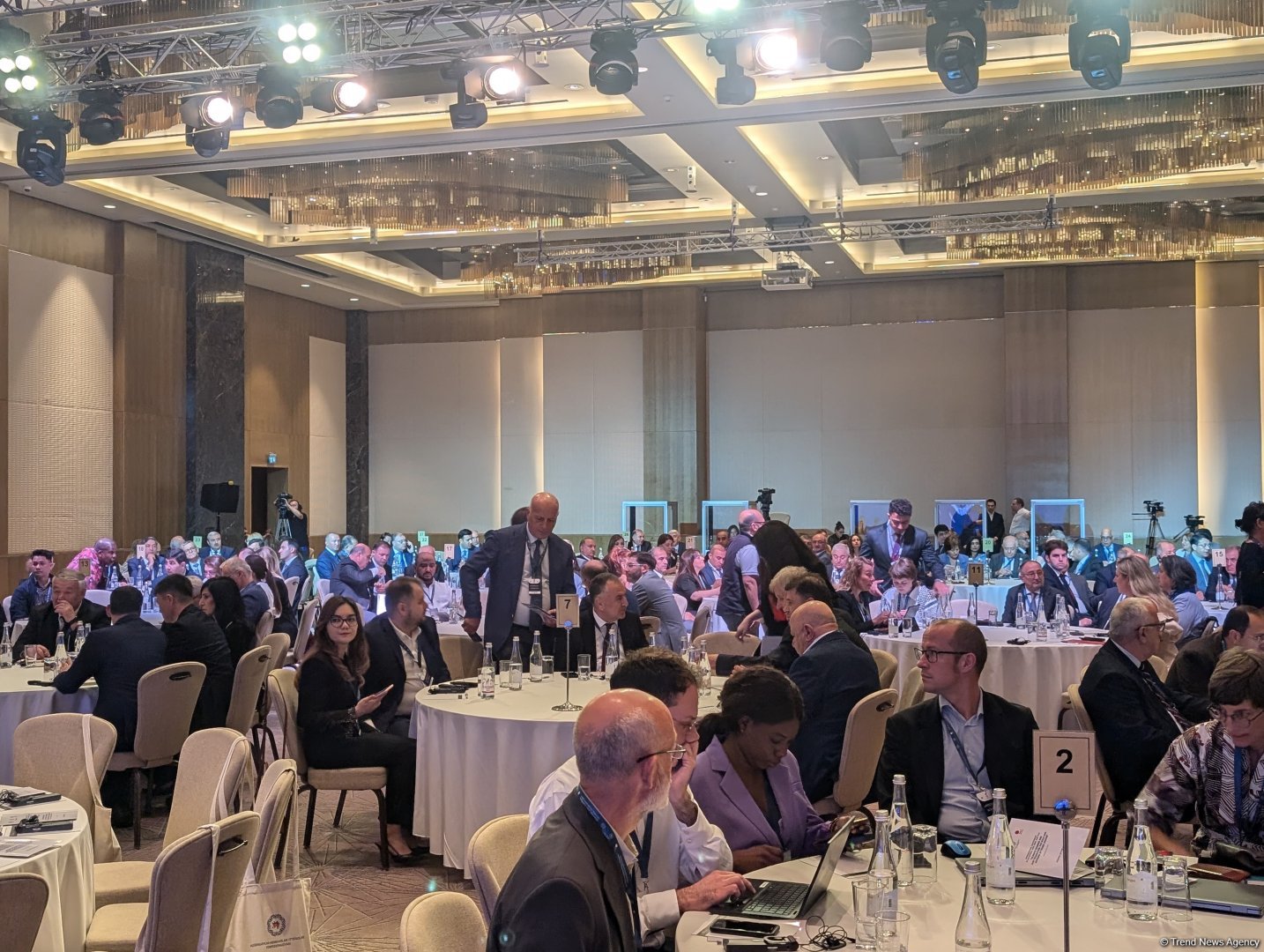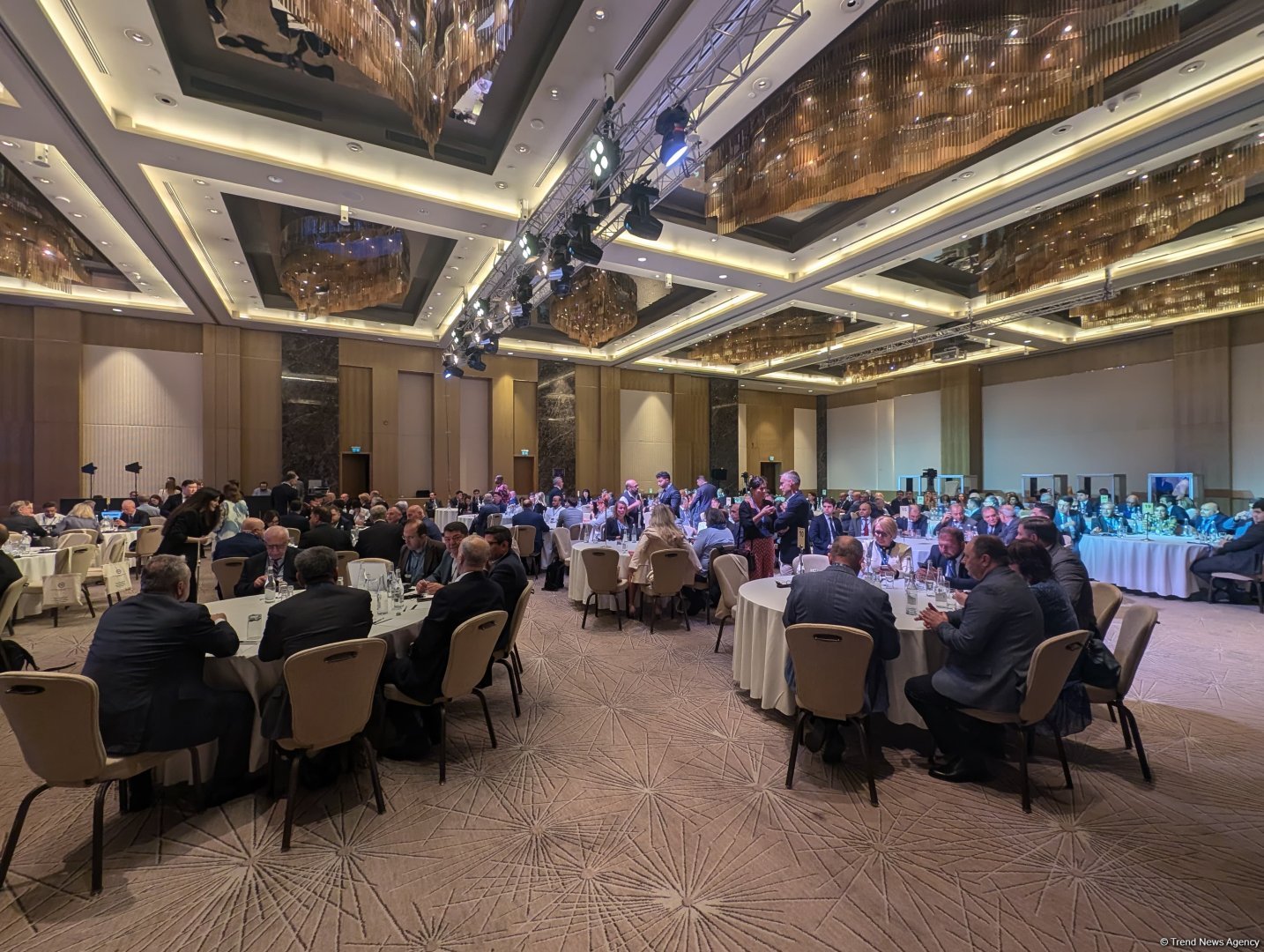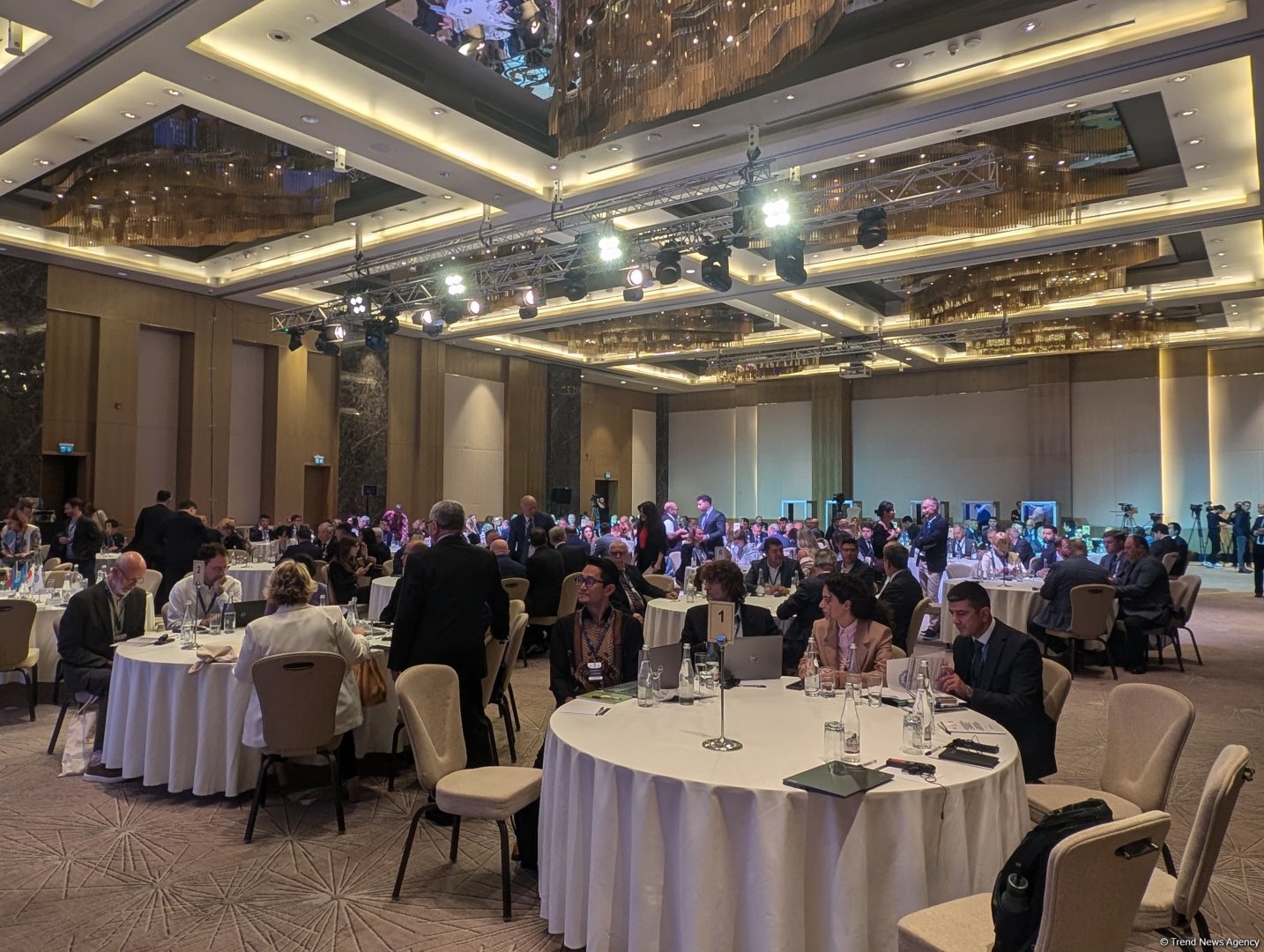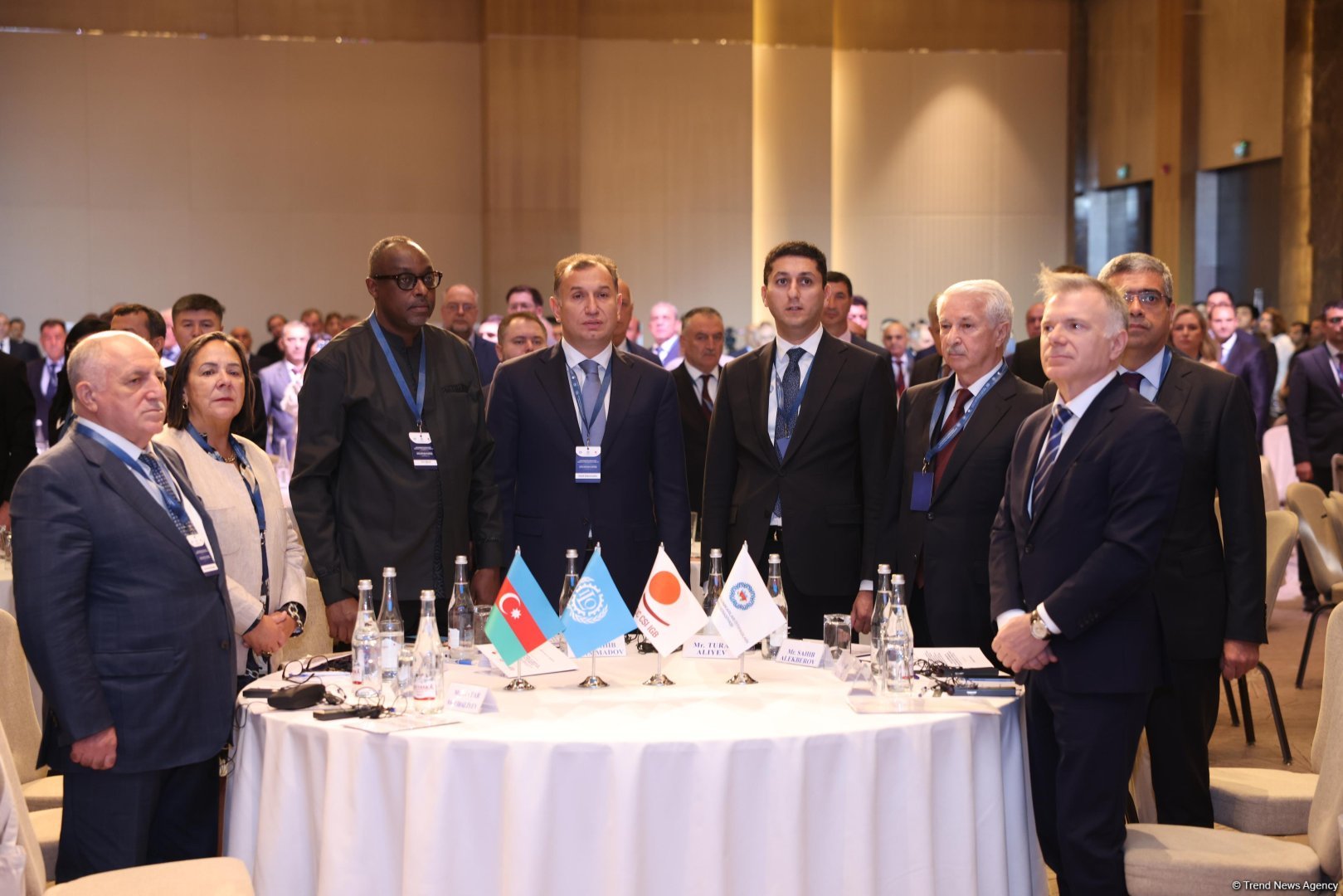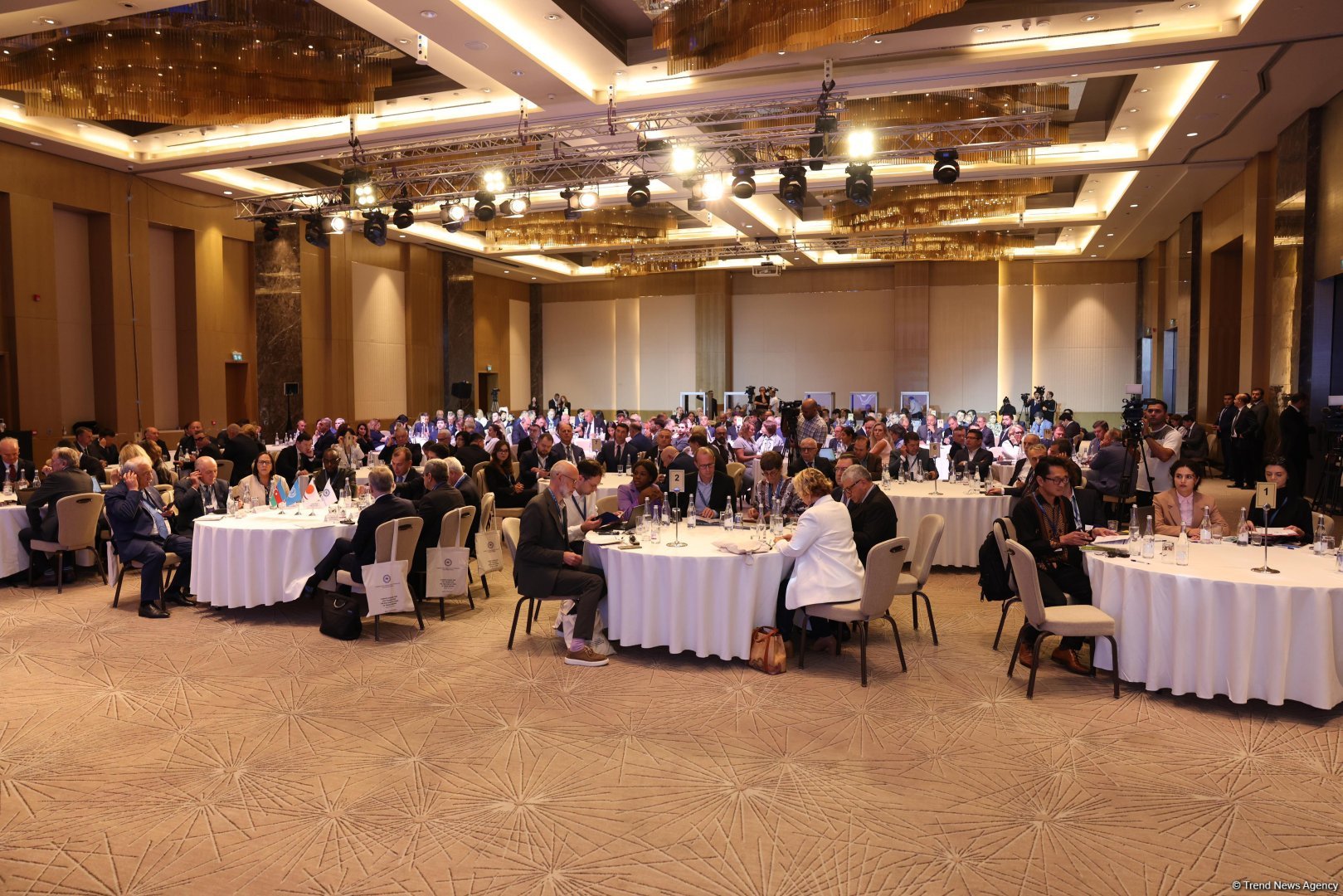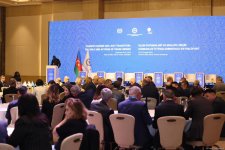BAKU, Azerbaijan, September 26. An international conference titled "Climate Change and Just Transition: The Role and Actions of Trade Unions" has been held in Baku, Trend reports.
The event was organized jointly by the Azerbaijan Trade Unions Confederation (ATUC), the International Labour Organization-Bureau for Workers 'Activities (ILO-ACTRAV), the International Trade Union Confederation (ITUC), and the Pan-European Regional Council (PERC).
The conference featured representatives of the Azerbaijani government, leadership and staff of the ATUC and its member organizations, officials from ILO-ACTRAV, ITUC, and PERC, as well as leaders and representatives of trade unions from various countries in Europe, Asia, and Africa, experts on Azerbaijan’s climate policy, environmental activists, entrepreneurs, private sector representatives, and non-governmental organizations.
The event focused on promoting the role of trade unions in climate change processes and a just transition, identifying and defending priorities for COP29, sharing the experiences of trade unions across different regions of the world, and expanding cooperation between trade unions, governments, and employers.
The Chairperson of the Azerbaijan Trade Unions Confederation Sahib Mammadov said that ambitious climate action will allow trade unions to play a key role in a just transition to a green economy.
“Many problems of our time are quite solvable despite their exceptional complexity. The resolution of such issues directly depends on how qualitatively and rapidly our lives are changing for the better. One such pressing topic is the role of trade unions in the fight against climate change. Climate change threatens the conditions of existence of all living things on the planet,” Mammadov said.
He emphasized that ambitious climate action can not only improve the environmental situation but also reduce social tensions, allowing trade unions to play a key role in a just transition to a green economy.
“We already have all the tools we need, which are in line with the UN Sustainable Development Goals and aimed at mitigating the climate crisis. We just need to utilize them more actively at the regional, local, and individual levels. It is crucial that these topics are at the center of our agenda, bringing together a large number of participants,” he added.
The Deputy General Secretary of the International Trade Union Confederation (ITUC) Eric Mwezi Manzi stressed that COP29 Presidency's active support is needed to fulfill commitments to protect labor rights.
"At last year’s COP28 Climate Conference, countries adopted the Just Transition Program. This is an important step forward, placing labor at the center of climate policy. For us, this program is not just a document for climate negotiators from the countries that signed the Paris Agreement.
It's the result of social dialogues that involved social partners, including trade unions, in discussing climate measures. Social protection has become a key element of the just transition, including measures such as unemployment benefits and health insurance for all those affected by climate change or climate measures themselves," he explained.
According to him, the issue of recognizing labor rights is equally important.
"They guarantee workers' freedom of association in trade unions, the right to collective bargaining, and other fundamental labor rights established by the International Labour Organization (ILO). For the first time, fundamental labor rights were mentioned in UN climate negotiations - this is a milestone for everyone interested in protecting workers' rights.
We must build on this achievement, implement it in practice, and remind countries of their obligations to protect labor rights. We need new social partners, and I hope to contribute to this process. It was encouraging that the COP29 President mentioned labor rights in his video message at the opening of the conference.
We need active support from the COP29 Presidency to fulfill these commitments. We aim for all countries to integrate the principles and measures of a just transition into their Nationally Determined Contributions (NDCs).
Next year, when countries are expected to update their NDCs, governments must consult with trade unions to assess the social impact of climate policies, address job losses, skill development, and other important aspects," he added.
Azerbaijani Deputy Minister of Economy Sahib Alakbarov noted that Azerbaijan actively participates in international agreements aimed at combating climate change.
"In the last decade, climate change has become one of the major challenges facing the world, and to address it, global leaders, experts, and specialists gather at international conferences to find solutions. Azerbaijan is actively involved in these processes, as evidenced by a number of international events such as the International Forum on Carbon Pricing, which is currently being held in Baku.
The forum is attended by representatives from the tax administrations of 40 countries, as well as officials from the European Union, the International Monetary Fund, and leading universities, including Harvard. The agenda includes discussions on important aspects of carbon policy aimed at reducing industrial sector emissions and supporting the use of environmentally friendly technologies," he said.
According to him, Azerbaijan is actively participating in international agreements aimed at combating climate change.
"In 1991, the country joined the UN Framework Convention on Climate Change, and in 2016, it ratified the Paris Agreement. According to Azerbaijan’s National Contribution, by 2030, the country is committed to reducing greenhouse gas emissions by 35 percent compared to 1990 levels, and by 2050, it aims to create zero-emission zones in the liberated territories.
One of the key directions of Azerbaijan's policy is the support of the 'green' economy, which includes the introduction of hybrid vehicles, the disposal of old vehicles, and the development of alternative energy sources. Several large projects for the construction of solar and wind power plants are already underway in the country, such as the solar power plant project, financed by private investments, in Jabrayil," he added.
The director of the East European and Central Asian office of the International Labor Organization (ILO), Mikhail Pouchkin said that the private sector has enormous potential to promote environmentally friendly technologies and create environmentally sustainable enterprises.
According to him, the transition to a sustainable economy is not a choice, but a necessity that stands as a barrier.
“The future of labor, millions of jobs, and the health of our planet depend on the scale of our actions. Our goal is to ensure a level playing field in the transition to sustainability and equity. The International Labor Organization resolution adopted at last year's International Labor Conference underscores the importance of integrating environmental sustainability with social justice, decent work, and poverty eradication,” he said.
Pouchkin mentioned that the risks of the present moment need to be recognized.
The director of the International Labor Organization's Office for Workers Maria Helena André emphasized that global action and cooperation will be discussed at COP29.
“It is critical to address the region's environmental challenges, from nuclear testing in Kazakhstan and the aftermath of the Chornobyl disaster to the environmental challenges in the Caspian Sea from years of oil extraction. In addition, geopolitical instability driven by interests in the region's natural resources exacerbates its fragility and jeopardizes environmental sustainability. In the upcoming discussions, we will discuss the trade unions' contribution to the preparations for COP29, as well as their involvement in the implementation of the nationally defined contributions under the Paris Agreement due next year,” she said.
André emphasized that the Minister of Ecology and Natural Resources of Azerbaijan, COP29 President Mukhtar Babayev, has already expressed his position in his welcome letter, and his remarks underline the importance of the common cause.
“The COP29 conference will discuss global action and cooperation. As the Minister noted, referring to the “final tests”, he emphasized the urgency with which issues of just transition and combating climate change need to be addressed. Ensuring that a just transition becomes an integral part of all Nationally Determined Contributions (NDCs) becomes a major challenge. At the same time, it is important that trade union organizations are not just involved in the discussions but also make commitments at the national level. One of the key aspects is the sharing of ideas, knowledge, and experiences so that all participants can benefit from such interactions,” she noted.








